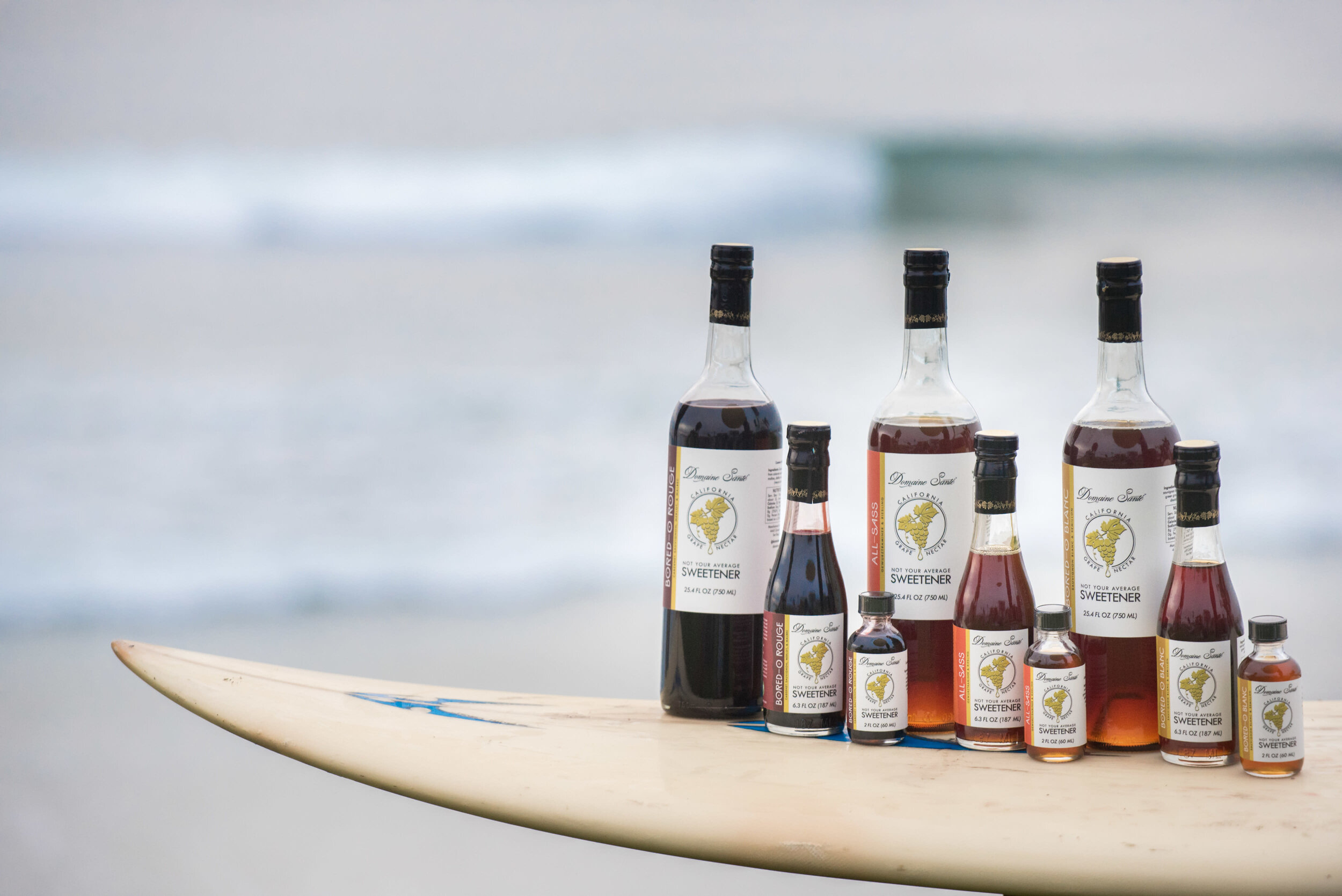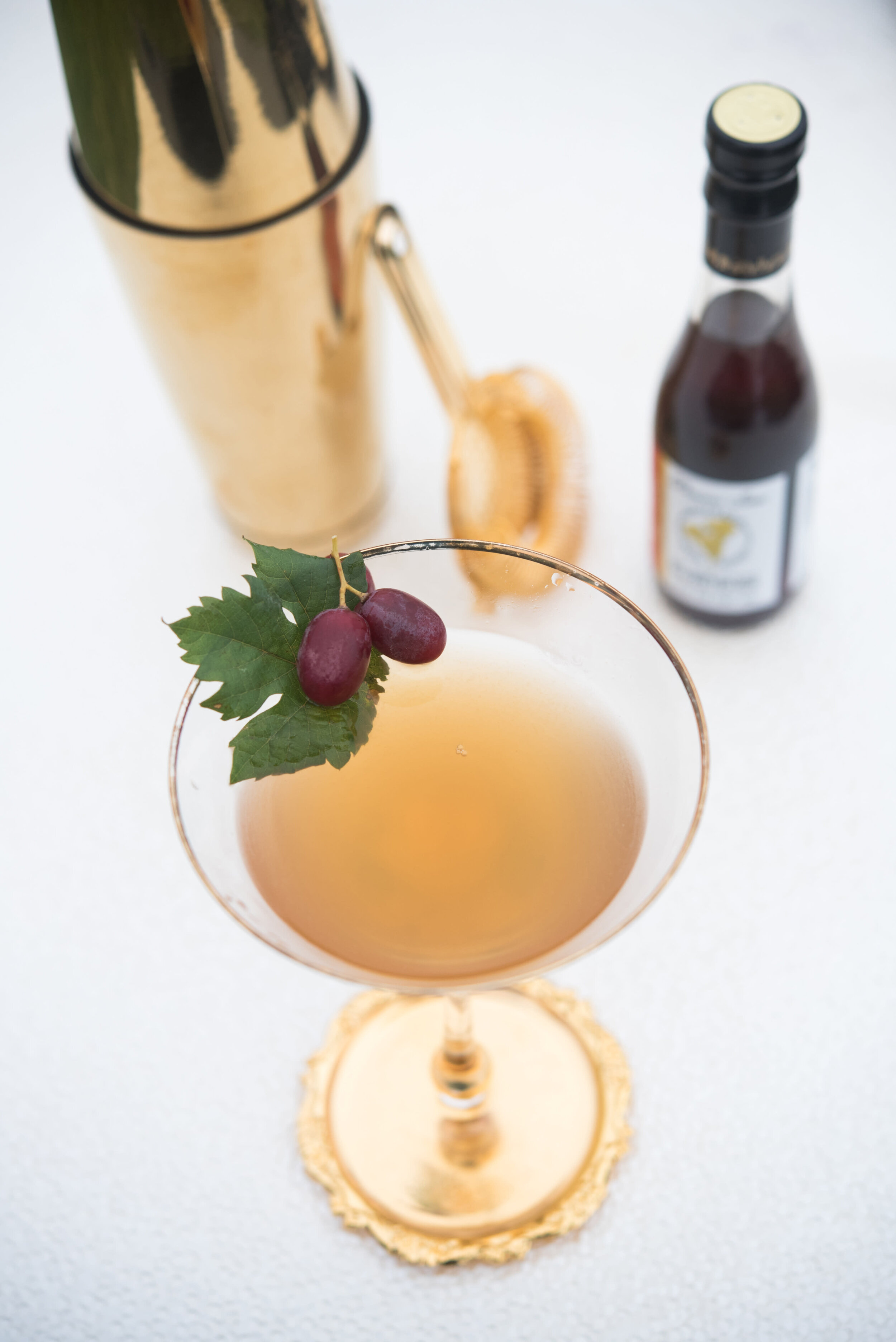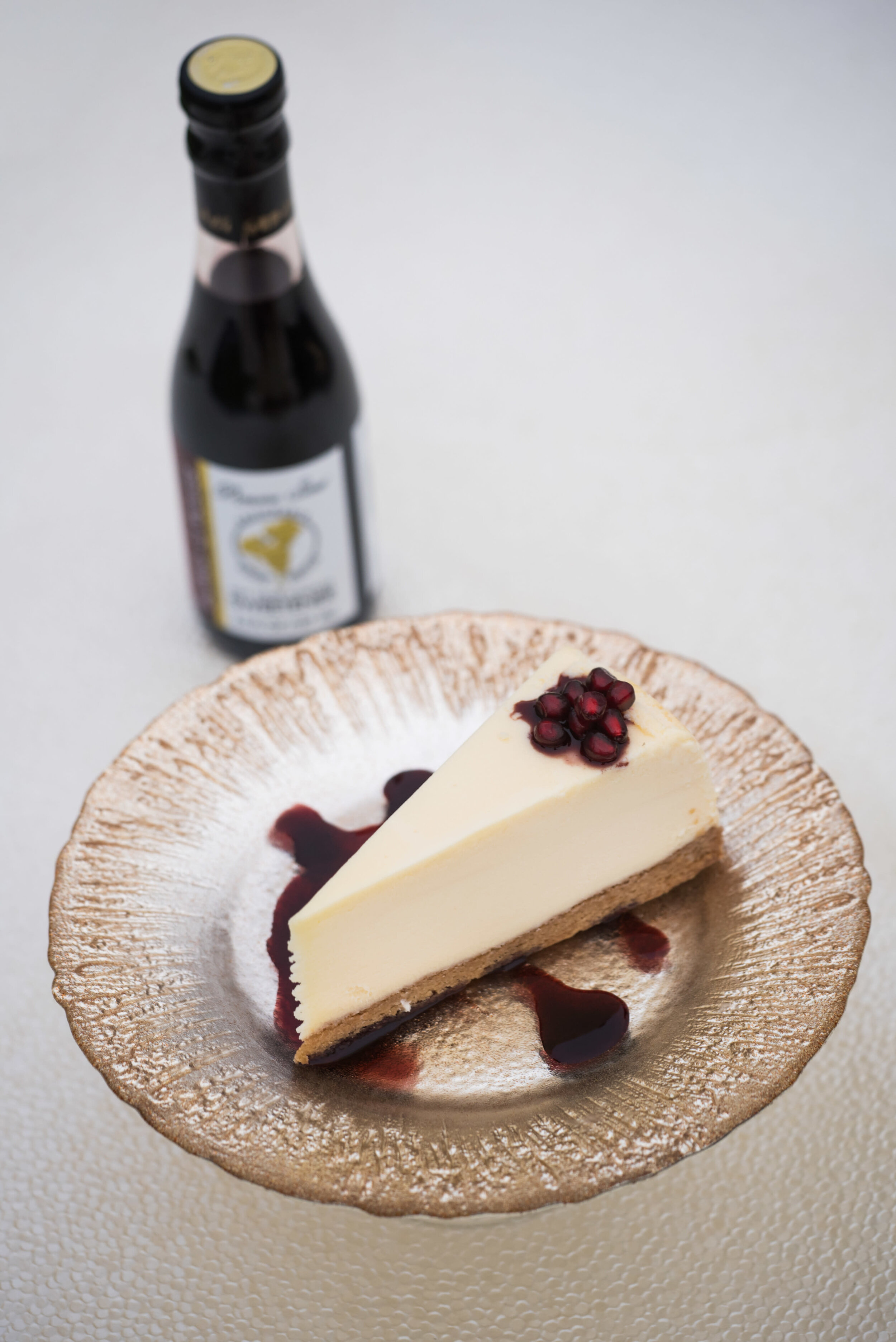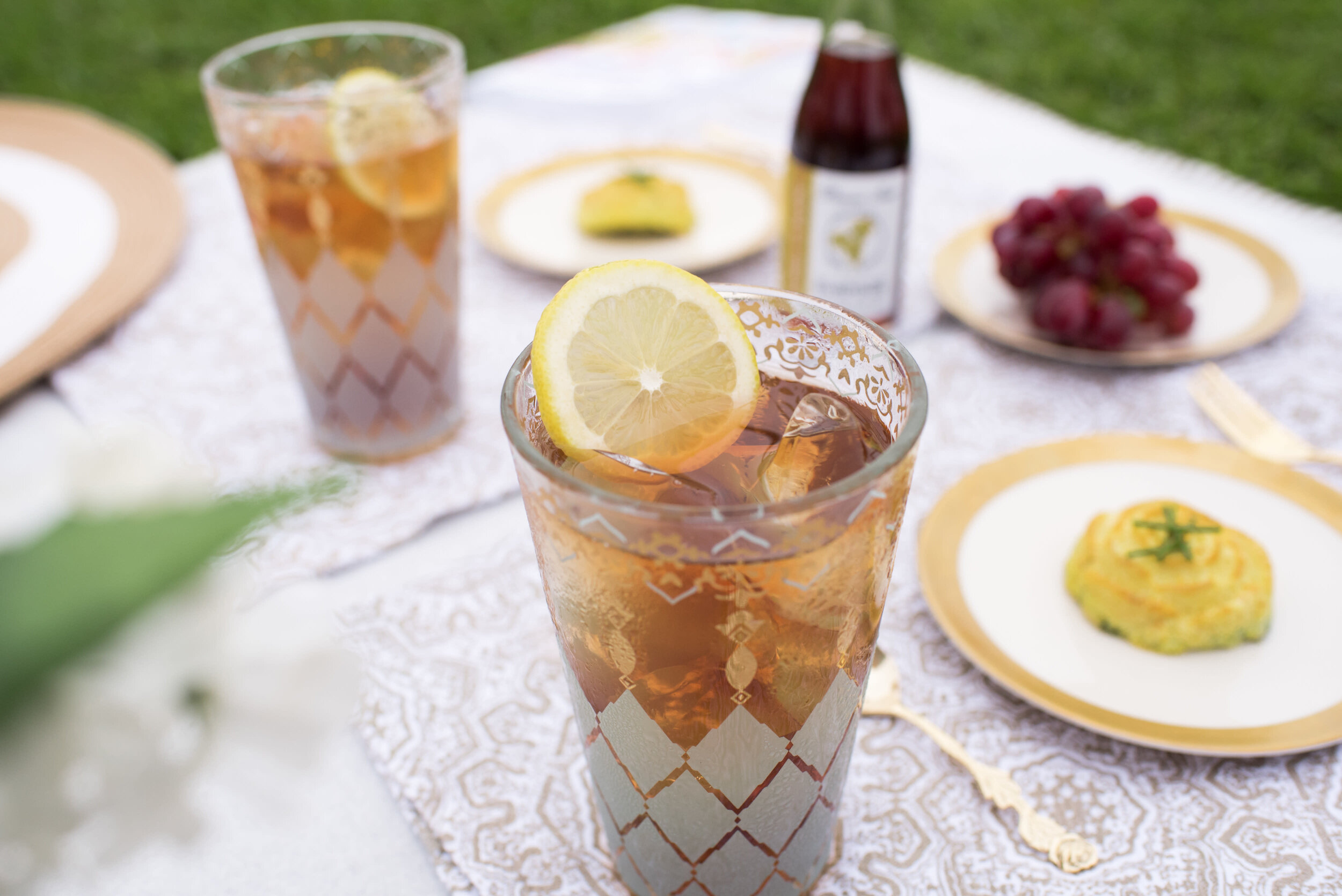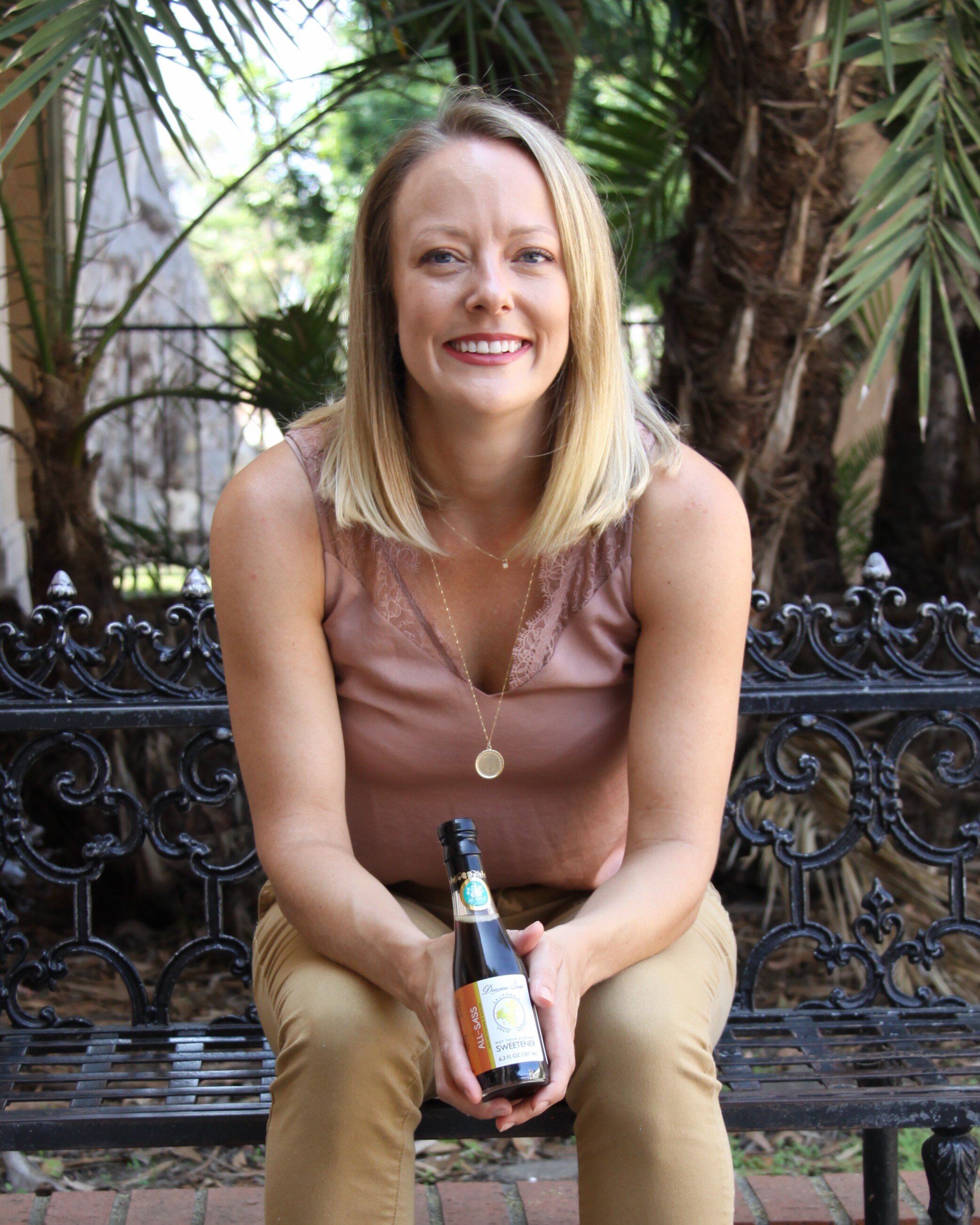A Little Something Sweet: Domaine Santé creates healthy, natural alternatives to refined sugar
By Cheryl Baehr
A trained nutritionist, Emily Josenhans realized early on in her practice just how much sugar was negatively impacting the lives of her clients.
For 10 years, as she worked with people in both group and individual settings, she found that, no matter how different their circumstances were, one of the common factors at the core of everyone’s health issues was that they were eating too much processed sugar. Josenhans wanted to help, but at the time, she didn’t know where to steer people that didn’t involve a complete elimination of sugar from their diets – something that ran counter to her desire to help her clients achieve balance in their lives. Determined to find a better way, she decided to take matters into her own hands.
“I was never really comfortable suggesting things that were on the market already,” Josenhans says. “I’d done research, and there are issues with almost every kind of sugar; especially if you are consuming it every day, it can be very harmful to the diet. People want their sweet, though, and I’ve always been a person of moderation and not one to have overly strict guidelines in my own diet. Obviously, I focus on a diet of whole foods, but I’ve never been one to say to cut something out completely, especially if it brings you joy. That’s always been my model, and it has done well with clients. I knew there had to be something better.”
That ethos of balance is what led Josenhans and her husband Jeff to found Domaine Santé, the California-based producer of grape nectar, which is a natural sweetener made from sustainably-sourced California wine grapes. An alternative to natural products like sugar, honey and agave, as well as artificial sugar substitutes like Stevia and Splenda, Domaine Santé’s grape nectars are meant to add natural, complex flavor to food and beverages (sans alcohol) while providing antioxidant benefits that, according to Josenhans, can potentially reverse some of the effects of sugar.
The Josenhanses did not come to grape nectar by chance. Longtime enthusiasts of French wine – Jeff is also a certified sommelier with 20 years in the food and beverage industry – the pair knew instinctively to look to the vineyard to find the key to developing a delicious, high-quality alternative to sugar. That was the easy part, however. As Josenhans explains, actually bringing their idea to fruition has been a lot of hard work, trial and error.
“It’s been a huge learning curve,” Josenhans says. “I’ve always had an interest in business and entrepreneurship, so for me, it was always a matter of what, not if. I had offered services as a nutritional counselor, so I was always interested in the hustle, but bringing a product to market is really difficult. I participated in accelerators, did a lot of research – literally figuring it all out from the ground floor has been very tough, but it’s also been very gratifying.”
In the four years since they had the germ of an idea for their business, the Johansens have built Domaine Santé from a vendor at area farmers’ markets into a recognized brand used by food and beverage professionals, including bartenders and both pastry and savory chefs. As she explains, the draw to the brand’s grape nectars is twofold: There is the health and wellness component of them as an alternative to sugar and sugar substitutes, but equally important, people are attracted to the products because of their flavor, which reflects the nuance of the different grape varietals used in each of the nectars.
Because of his sommelier experience, Jeff was intimately involved in the crafting on Domaine Santé’s different nectar varieties. Inspired by Old World winemaking techniques, Jeff and Emily came up with three different nectar blends that, while able to be used interchangeably, have their own special applications. “Bored-O Blanc,” a blend of Sauvignon Blanc and Semillion, as is found in white Bordeaux wines, has a slightly tangy and crisp character with notes of fig and stone fruits, making it ideal in everything from baking to sauces and marinades. “Bored-O Rouge,” made from the red Bordeaux grapes Cabernet, Merlot and Malbec, is warm and rich with dark berry notes, making it especially good on pancakes, ice cream and yogurt. The “All-Sass,” a blend of Riesling and Gewürztraminer, is known for its citrus and spice flavors, which makes it a good replacement for honey or agave in cocktails.
Josenhans believes the multidimensional flavors found in Domaine Santé’s nectars make them especially exciting for industry professionals, who are able to creatively apply them for many uses in beverages as well as sweet and savory dishes. Since its founding, this has been the brand’s main focus, but they’ve recently had to pivot in the wake of the COVID-19 pandemic, which has wreaked havoc on restaurants and hotels.
“85 percent of our business flew out the door,” Josenhans says. “We’ve had to shift focus to the home user a little deeper whereas that wasn’t really the main focus prior to COVID. Professionals still love our product, but they are having such a hard time. We love that side of the business, but they have been hit so hard.”
Fortunately for Domaine Santé, its grape nectars have been welcomed in home kitchens thanks to their versatility and ease of use. Josenhans has seen customers using the nectars as bases for salad dressings and sauces, in margaritas in place of agave, and even atop a simple bowl of yogurt or oatmeal. And the brand is adding to its repertoire with a new line of infusions that use natural ingredients like mint and Key limes to enhance food and drinks even more.
“One of the great things about our product is that it has translated really well during COVID,” Josenhans explains. “It adds a lot of value because it adds so much complexity and flavor to food without having to add so many ingredients. It’s nice that people see the value of it and appreciate the nuances it brings.”
Josenhans is excited to see Domaine Santé take off and persevere in such challenging times. Thinking back to when she first started selling the grape nectars at farmers’ markets around her San Diego home, she can’t help but see how far the brand has come and feel that she’s been able to help people live a more healthful lifestyle – even if they don’t even realize it.
“The most exciting part of this has always been to see people’s reaction to the product when they taste it for the first time,” Josenhans says. “There’s nothing better than that. We’ve taken so much pride in developing this over the years, and to know that the people are choosing our product may not even know that it’s good for them and that it’s healthier – that’s why we’ve always wanted to bring this to market. My husband always saw professionals using it, but for me, it’s so much more than that. I wanted every single person to be able to upgrade their sweetener so that they could give it to their kids and families. But I also wanted them to enjoy it. It’s important to me that we’ve been able to do that. Seeing customers share how excited they are is really gratifying. We are very lucky.”

